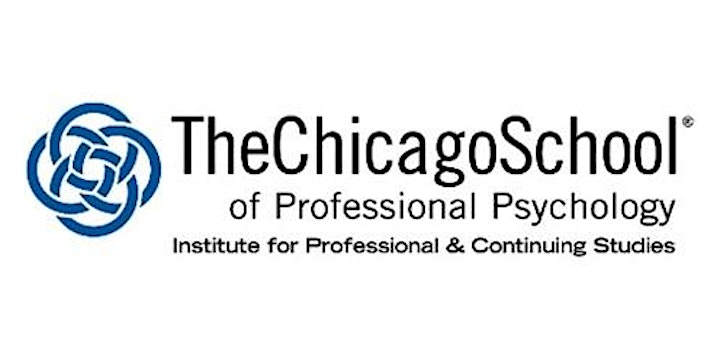
- This event has passed.
An Introduction to LGBTQ+ Social Justice Issues in Counseling
June 25, 2021 @ 1:00 pm - 4:00 pm CDT

This webinar is being hosted on Zoom. The link to the Zoom meeting will be included in your order confirmation email from Eventbrite.
This live course offers 3.0 APA CE credits for Psychologists, 3.0 BBS California CEUs for Licensed Counselors, Social Workers or Marriage and Family Therapists, or 3.0 NBCC Clock Hours.
About This Event
This session will introduce mental health disparities experienced by gender and sexual minorities and barriers to effective counseling. Attendees will better understand the needs of LGBTQ+ clients, the importance of phenomenological therapy approaches to minimize bias, and learn about resources for further education and training to deepen their knowledge. The impact of COVID-19 on LGBTQ+ clients will also be discussed (e.g., physical distancing, canceled Pride celebrations, and closed community support spaces).
Attendees will also learn about the differences between stress factors impacting sexual minorities and those impacting gender minorities. Attendees will learn about the sexual minority stress theory (Meyer, 1995, 2003) and the gender minority stress framework (Testa et al., 2015). The presentation will include separate case studies for application of both theories during case conceptualization and treatment planning. The presentation will also include an overview of empirically-validated counseling theories adapted to gender and sexual minority populations.
Attendees are expected to read the case studies before attending the presentation, so they are familiarized with the case studies and prepared for discussion exercises.
Learning Objectives
At the completion of this program participants will be able to:
1. Understand the difference between “sex,” “gender,” “sexuality,” and “gender identity”
2. Utilize minority stress framework (Meyer, 1995, 2003) and gender minority stress framework (Testa et al., 2015) in case conceptualization and treatment planning
3. Understand the factors that lead to mental health disparities among people who are gender and sexual minorities
4. Understand the barriers to effective counseling of gender and sexual minorities
5. Identify and utilize resources for further learning on LGBTQ+ vocabulary, counseling topics, and social justice issues
6. Integrate LGBTQ+-specific resources for suicidality safety planning
Speakers

Dr. Shauna Moore Reynolds, Ed.D., LCPC-S, NCC, ACS is an Assistant Professor at the Chicago School of Professional Psychology in the Department of Clinical Mental Health. Dr. Reynolds holds a doctorate degree in Counselor Education and Supervision from Texas Southern University.
Dr. Shauna Moore Reynolds is a Licensed Clinical Professional Counselor-Supervisor (LCPC-S) in Maryland, a Licensed Professional Counselor (LPC) in Washington, D.C., a NBCC National Certified Counselor (NCC), and an Approved Clinical Supervisor (ACS). Dr. Shauna has served her community discussing the importance of mental health care and self-care. She holds positions as a Mental Health First Aid Facilitator, Red Cross Disaster Mental Health Volunteer and continues to be a source of support and mentorship for master’s level mental health counseling interns, pre-licensed and post-licensed counselors. During Dr. Shauna’s time of government services, she has held positions at the Texas Department of Health and Human Services, Texas Department of Protective and Regulatory Services, The Washington, D.C. Attorney Generals’ Office, The United States Attorneys’ Office, and The Department of Justice. Currently, Dr. Shauna is the owner and Executive Director of SMR Counseling Services, located in Maryland. Dr. Shauna’s areas of research include: Anxiety, Depression, Crisis, Trauma, Post-Traumatic Stress, Sexual Assault and Domestic Violence.

Glen Bradley (he) is a master’s student in the Clinical Mental Health Counseling program at TCSPP in Washington, DC. Glen has over 6-years of experience facilitating LGBTQ+ cultural competency training seminars across a diverse field, from the DC office for the Federal Maritime Commission to his university’s centers for Student Health Services and Counseling and Psychological Services. Glen has also presented on LGBTQ+ counseling topics for the DC Mental Health Counselors Association (DCMHCA) and at TCSPP Online Campus’ 4th Annual Virtual Conference: Clinical Mental Health and Beyond.
Program Standards and Goals
This program meets APA’s continuing education Standard 1.3: Program content focuses on topics related to psychological practice, education, or research other than application of psychological assessment and/or intervention methods that are supported by contemporary scholarship grounded in established research procedures.
This program meets APA’s continuing education Goal 1: Program is relevant to psychological practice, education, and/or science.
References
Bockting, W. O., Miner, M. H., Swinburne Romine, R. E., Dolezal, C., Robinson, B., Rosser, B. R. S., & Coleman, E. (2020). The transgender identity survey: A measure of internalized transphobia. LGBT Health, 7(1), 15-27. http://dx.doi.org.tcsedsystem.idm.oclc.org/10.1089/lgbt.2018.0265
Human Rights Campaign. (2020). Fatal Violence Against the Transgender and Gender Non-Conforming Community in 2020. Retrieved November 20, 2020, from https://www.hrc.org/resources/violence-against-the-trans-and-gender-non-conforming-community-in-2020
Human Rights Campaign Foundation. (2020). The Lives & Livelihoods of Many in the LGBTQ Community are at Risk Amidst COVID-19 Crisis. Retrieved November 20, 2020, from https://assets2.hrc.org/files/assets/resources/COVID19-IssueBrief-032020-FINAL.pdf?_ga=2.235357892.47242619.1605928655-32077651.1605716406
Hidalgo, M. A., Petras, H., Chen, D., & Chodzen, G. (2019). The gender minority stress and resilience measure: Psychometric validity of an adolescent extension. Clinical Practice in Pediatric Psychology, 7(3), 278-290. http://dx.doi.org.tcsedsystem.idm.oclc.org/10.1037/cpp0000297
James, S. E., Herman, J. L., Rankin, S. , Keisling, M. , Mottet, L. , & Anafi, M. (2016). The report of the 2015 U.S. Transgender Survey. Washington, DC: National Center for Transgender Equality. Retrieved April 16, 2021, from https://www.transequality.org/sites/default/files/docs/USTS-Full-Report-FINAL.PDF
Killermann, Sam. (2018). The Genderbread Person version 4. It’s Pronounced Metrosexual. Retrieved November 14, 2020, https://www.itspronouncedmetrosexual.com/2018/10/the-genderbread-person-v4/
Mental Health America. (2020). LGBTQ+ Communities And Mental Health. Retrieved November 20, 2020, from https://www.mhanational.org/issues/lgbtq-communities-and-mental-health
Meyer, I. H. (1995). Minority stress and mental health in gay men. Journal of Health and Social Behavior , 36(1), 38–56. doi:10.2307/2137286
Meyer, I. H. (2003). Prejudice, social stress, and mental health in lesbian, gay, and bisexual populations: Conceptual issues and research evidence. Psychological Bulletin, 129, 674–697. doi:10.1037/0033-2909.129.5.674
Millet, N., Longworth, J., & Arcelus, J. (2017). Prevalence of anxiety symptoms and disorders in the transgender population: A systematic review of the literature, International Journal of Transgenderism, 18:1, 27-38, https://doi-org.tcsedsystem.idm.oclc.org/10.1080/15532739.2016.1258353
National Alliance on Mental Illness. (2020). LGBTQI. Retrieved November 20, 2020, from https://www.nami.org/Your-Journey/Identity-and-Cultural-Dimensions/LGBTQI
Pachankis, J., & Safren, S. (2019, April.). Handbook of Evidence-Based Mental Health Practice with Sexual and Gender Minorities. New York, NY: Oxford University Press. Retrieved 18 Apr. 2021, from https://thechicagoschool-CHI.on.worldcat.org/oclc/1089840663
Rood, B. A., Maroney, M. R., Puckett, J. A., Berman, A. K., Reisner, S. L., & Pantalone, D. W. (2017). Identity concealment in transgender adults: A qualitative assessment of minority stress and gender affirmation. American Journal of Orthopsychiatry, 87(6), 704-713. http://dx.doi.org.tcsedsystem.idm.oclc.org/10.1037/ort0000303
Shipherd, J. C. (2015). Defining competence when working with sexual and gender minority populations: Training models for professional development. Clinical Psychology: Science and Practice, 22(2), 101-104. doi:http://dx.doi.org.tcsedsystem.idm.oclc.org/10.1111/cpsp.12100
Tan, K. K. H., Treharne, G. J., Ellis, S. J., Schmidt, J. M., & Veale, J. F. (2020). Gender minority stress: A critical review. Journal of Homosexuality, 67(10), 1471-1489. http://dx.doi.org.tcsedsystem.idm.oclc.org/10.1080/00918369.2019.1591789
Testa, R. J. , Habarth, J. , Peta, J. , Balsam, K. , & Bockting, W. (2015). Development of the gender minority stress and resilience measure. Psychology of Sexual Orientation and Gender Diversity, 2(1), 65–77. doi:10.1037/sgd0000081
Williams Institute, UCLA School of Law. (2019, January). LGBT Demographic Data Interactive. Retrieved November 20, 2020, from https://williamsinstitute.law.ucla.edu/visualization/lgbt-stats/?topic=LGBT#density
Registration and Fees
Chicago School Faculty, Students, and Alumni: Free (Chicago School email required for free registration)
Community Members: $40.00
Potential Students Only (*No CEUs Provided*)
All funds raised through this workshop will benefit The Chicago School of Professional Psychology’s Washington DC Campus Counseling Department Scholarship Program.
Refund Policy: 100% of tuition is refundable up to 48 hours before the program. Within 48 hours of the program, tuition is nonrefundable.
Continuing Education
Target Audience: Professionals from all mental health disciplines and graduate students from all mental health disciplines.
Psychologists. The Chicago School of Professional Psychology is committed to accessibility and non-discrimination in its continuing education activities. The Chicago School of Professional Psychology is also committed to conducting all activities in conformity with the American Psychological Association’s Ethical Principles for Psychologists. Participants are asked to be aware of the need for privacy and confidentiality throughout the program. If program content becomes stressful, participants are encouraged to process these feelings during discussion periods. If participants have special needs, we will attempt to accommodate them. Please address questions, concerns and any complaints to Danielle Bohrer at 312-467-2364. There is no commercial support for this program nor are there any relationships between the CE Sponsor, presenting organization, presenter, program content, research, grants, or other funding that could reasonably be construed as conflicts of interest.
MFTs, LPCCs, and LCSWs. Course meets the qualifications for continuing education credit for MFTs, LPCCs, and/or LCSWs as required by the California Board of Behavioral Sciences. If you are licensed outside of California please check with your local licensing agency to determine if they will accept these CEUs. The Chicago School of Professional Psychology is approved by the California Board of Behavioral Sciences (BBS) to offer continuing education programming for MFTs, LPCCs, LEPs, and/or LCSWs. The Chicago School of Professional Psychology is an accredited or approved postsecondary institution that meets the requirements set forth in Sections 4980.54(f)(1), 4989.34, 4996.22(d)(1), or 4999.76(d) of the Code.
Participation Certificate. The Chicago School of Professional Psychology is able to provide students and other participants who simply wish to have documentation of their attendance at the program a participation certificate.
Non Psychologists. Most licensing boards accept Continuing Education Credits sponsored by the American Psychological Association but non-psychologists are recommended to consult with their specific state-licensing board to ensure that APA-sponsored CE is acceptable.
Participants must attend 100% of the program, and pass a brief comprehension quiz, in order to obtain a Certificate of Attendance.
The Chicago School of Professional Psychology is approved by the American Psychological Association to sponsor continuing education for psychologists. The Chicago School of Professional Psychology, Washington DC Campus has been approved by NBCC as an Approved Continuing Education Provider, ACEP No. 3061. The Chicago School of Professional Psychology maintains responsibility for this program and its content.




